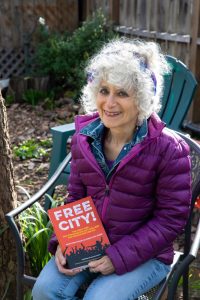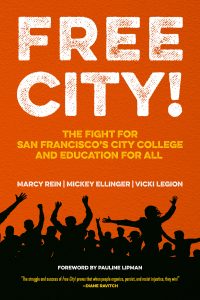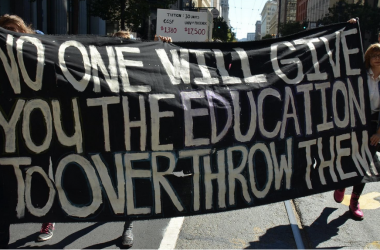By Shayna Gee
The Guardsman
February 23rd, 2021
Free City! The Fight for San Francisco’s City College and Education for All is a part-analysis, part-narrative book co-authored by Marcy Rein, Mickey Ellinger, and Vicki Legion. Published in early February, Free City! follows five years of organizing that eventually resulted in the implementation of free tuition for San Francisco residents.
Legion, a long time faculty and a core activist at Save City College Coalition, began this work with a student research committee, examining the administrators and those in power who had particular interests in “safeguarding” the educational quality of City College.
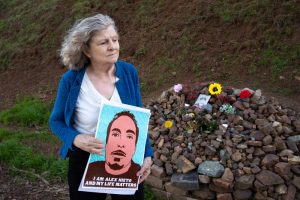
The authors wanted answers to questions such as how the Accrediting Commission for Community and Junior Colleges (ACCJC), a small committee, could say they were going to close the large and well respected City College.
Legion and the Save City College Coalition began collaborating with Rein, a writer, organizer, and community journalist. Together, they co-wrote articles in the magazine, Race, Poverty, & the Environment (Vol. 21-1) examining the coexisting crises and the fights led by the people.
“There is so little that is actually written to celebrate this kind of community work,” said Rein, “much less explaining how it happened.” Recognizing the importance of documenting these stories, Free City! was born.
Writer and self proclaimed “footnote queen” of this book, Ellinger, explained, “As austerity and budget cuts narrowed what were the resources for community college … it left administrative positions vacant, the faculty volunteered for pay cuts, people did what they needed to do to keep the college a community serving college.”
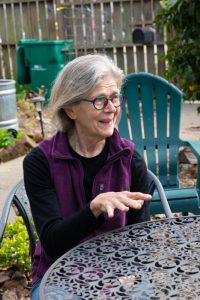
She credits the words of scholar Henry Giroux, “The attack on public education is not because the schools are failing — but because they are public.”
The book highlights that in 2012, City College served over 90,000 students, in which “nearly three-quarters” were low-income students of color and that English as a Second Language (ESL) was the largest program. “The notion of what public meant was exactly defying the ‘go small, get a degree, business model,’” Ellinger said. The state had a vested interest in the control of City College and some administrators were glad to hand it over, but the community refused to let go of the place they loved.
In 2012, The Fiscal Crisis Management and Assistant Team (FCMAT) insisted on an austerity program for the college that essentially threatened state takeover if the school did not make massive budget cuts. Fear and uncertainty ran through City College.
Rein noted that the local teachers union, AFT 2121, had “institutional resources.” They were able to reach a wide audience by organizing through state and federal networks. However, the unions also had “institutional restraints” because they were legally restricted from initiating demonstrations like the students had.
As the book shows, the challenges and fight weren’t barricaded within City College. With the elections nearing, the community mobilized San Franciscians to vote for Proposition A parcel tax which won unanimously. “They gave people something to fight for,” the authors wrote.
Free City! encapsulates the entrenched social, economic, and political issues that marginalized communities continue to bear the brunt of. Across San Francisco, the tech boom, coupled with at the time Mayor Lee and his interest in real estate, doubled rent prices from 2010 to 2015, with evictions and displacements at similar rates.
City College predominantly serves communities of color and working class communities, the same people who were being pushed out by rapid gentrification. “This book is about education, but also CCSF is so rooted in the place,” Rein said.
With over 80 interviews, Free City! is a treasure packed with a wide range of voices from students, teachers, labor unions, and community members. This book doesn’t only spotlight those who fought for City College, it tells readers about the struggles that existed to the extent that “strong faculty unionists were scared to publicly criticize the ACCJC.”
But the engagement and resistance of students continued to power the movement. “Students called the first sit-in in City College history,” Legion said. “They sat in Conlan Hall all night with decorated banners and placards and there were four TV trucks lined up … beaming news about City College.”
